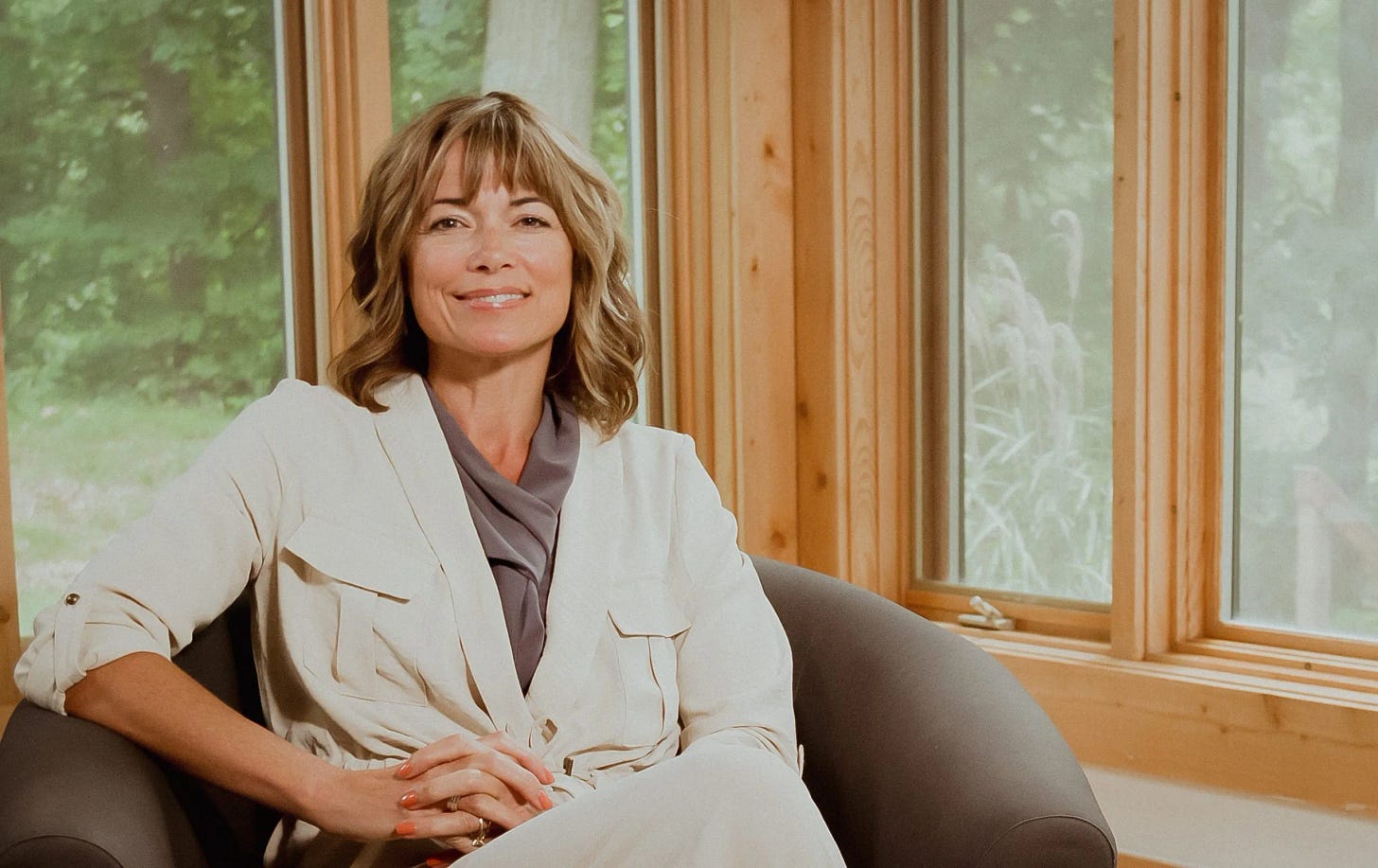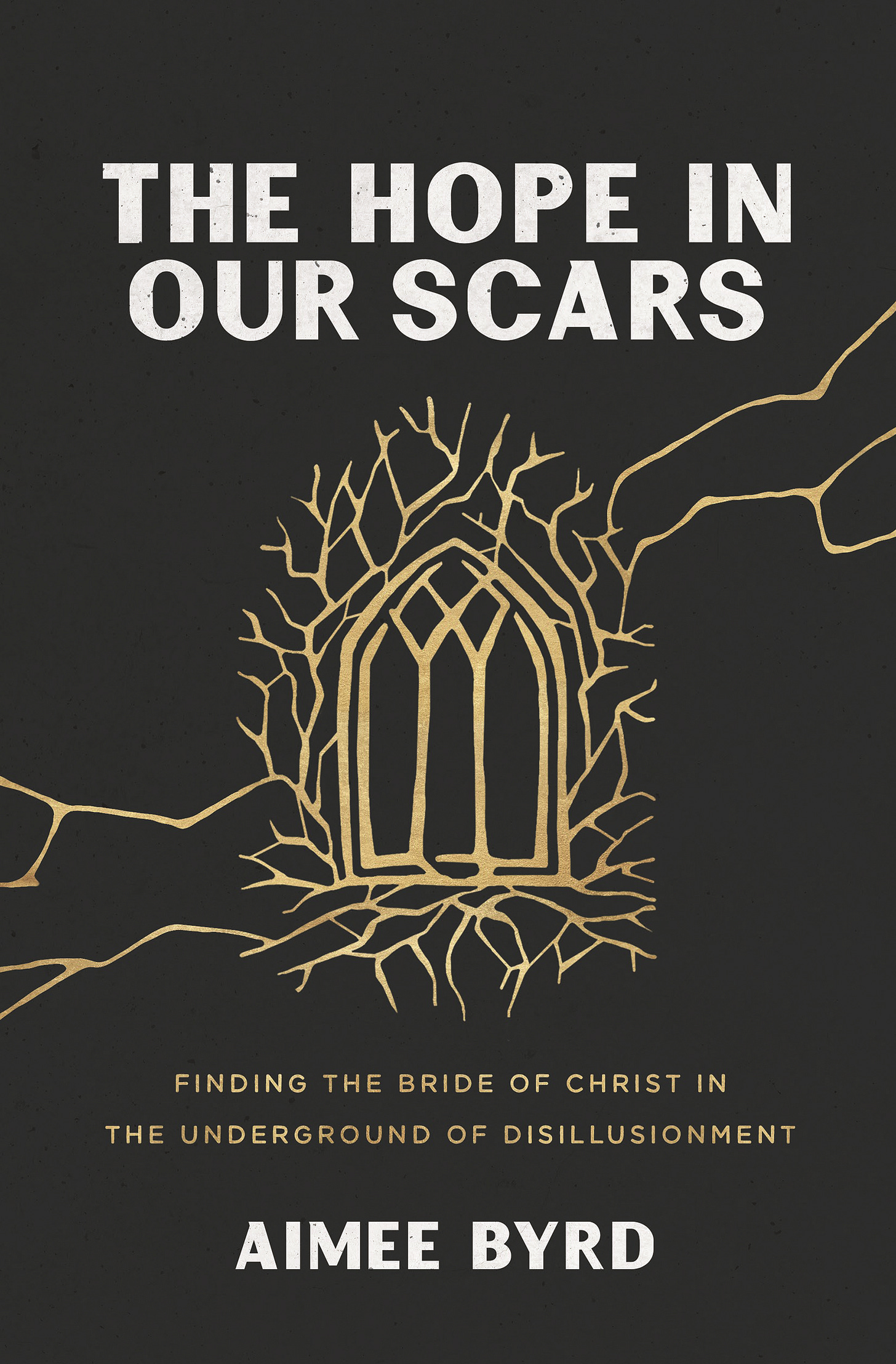If you don’t run in deeply evangelical circles—or never experienced the challenge of trying to suggest women’s equal authority in a church setting—you might have thus far lived ungrazed by the Council for Biblical Manhood and Womanhood. This group, founded in 1987, was the fever dream of a group of conservative and reformed pastors. They wrote up The Danvers Statement, which stated among other theological declarations that “Adam’s headship in marriage was established by God before the fall,” that sin inclines women to “resist limitations on their roles” in ministry, and that some church governing and teaching roles are restricted to men.
The influence of their ideas spread like a patriarchal virus among evangelical, conservative and non-denominational churches. In 1991, two of the leading signatories, Wayne Grudem and John Piper, wrote a book so good they eventually gave it away for free: Recovering Biblical Manhood & Womanhood: A Response to Evangelical Womanhood.
These fellows represented a whole front of men so secure in their [biblical] manhood that when author and speaker Aimee Byrd published her book Recovering from Biblical Manhood & Womanhood… they lost their ever-loving minds.
Byrd became the target of vicious online bullying. She lost her role as host on the podcast Mortification of Spin. One pastor posted on Facebook, “I wish her husband loved her enough to tell her to shut up.” Another wrote, “Why can’t these women just take their shoes off and make us sandwiches?” Douglas Wilson, a lover of women making sandwiches, had already written a five-part condemnation of one of Byrd’s prior works (after she critiqued some of his writing), and became part of an onslaught of online attacks against Byrd. According to a pastoral assistant of Wilson’s, the pastor’s later book Ride, Sally Ride—a book about the murder of a female sex robot—was a response to Byrd’s theological claims. The guys over at CrossPolitic suggested that Byrd’s elders, pastor and husband should love her enough to stop her from “writing and teaching errors” and extrapolated further that “Christian men need to rise up and tell feminists like her within the church to be quiet.”
It’s important to know all this, to know Byrd’s scars, in order to grasp what it has taken to heal them. Today, she’s the sort of feminist whose proverbial ‘sandwiches’ could immediately give indigestion to this class of patriarchal leaders. Like many who have been harmed, she seeks to help others, including those who find themselves in more private battles over their right to equal space in a spiritual setting.
We recently talked about her book, The Hope in Our Scars.
The following conversation has been edited for length and clarity.
Sarah Stankorb: I have to say, I was not raised in the evangelical world, so the first time I became aware of you was when certain, uh, men started to treat you as a dangerous feminist. And so of course I've wanted to talk to you ever since.
Aimee Byrd: That's funny.
Stankorb: So, I read your book. I don't want to make you digging through the painful bits, especially to start, but just a degree to which you're comfortable. I'm wondering if you would talk to me about what it's like having these faith scars and how that drew you into writing this book.
Byrd: I think an important part of it is naming our wounds, which is so incredibly hard to do when you're in a culture that is minimizing them, denying them, and the people you're going to for help may admit that you're being harmed, but they're continuing to keep you in a system that enables the abuse, and so they become complicit to the harm. The system itself that you're turning to is re-traumatizing you and harming you further.
It's hard to, to be able to say that these people that I trusted, this community that I thought I had belonging in, friends I thought I had, leaders that, I did trust—that they were harming me too. So it's kind of easy for me to define the horrible stuff that was happening online and the terrible things that were being said about me and the way that they were not critiquing my work, but going after my character and my reputation.
I lost my job as a podcast co-host, and the relationships there. That had been a seven year thing. Then there's the levels of friendship within my own local church. People in this group [attacking me] were also calling ahead of my speaking engagements and sabotaging those and warning the leaders to guard their families from me So they were going after my vocation, my personal life. I can understand what I wrote being controversial, but I don't understand how it leads to like saying this about my character.
I think a big part of forming the scars is being able to just name those wounds and then realize, you know, what am I going to do then for healing?
Stankorb: Tell me a little more about healing those scars.
Byrd: Evaluating that path of healing is helpful because I think scars themselves, when you begin to heal, scars are kind of a boundary, right?
They are a different texture than the rest of your skin. They're more protective. When you run your finger over a scar, it tells a story of what happened, where you've been, who was with you in it and, spiritually speaking, where Christ met you in that pain and where you're headed now.
And I love that about Christ that after the resurrection, he shows his scars.
Stankorb: That's really beautiful. I've been thinking a lot about survivors whose stories I've reported on and there are folks who come to me when the wounds are still open. When they're really just still hurting. There's a right time to tell the story, to write your own story. Because you need the distance to be able to put it into words and be able to really see the whole of what happened to you.
Because when you're just getting bombarded day after day, you don't have time to process any of it. You don't have scars yet. You're still bleeding. Do you think there was anything, even just time-wise, that you needed to get to so you could write this book?
Byrd: Definitely. There's still is so much to work through, and I believe writing the book was healing for me in a lot of ways, but I definitely needed time before even doing that. I needed to step away from the church that I was in. It's kind of embarrassing in some ways to say that I remained there for two years.
I was meeting with a therapist who specializes in spiritual abuse. He said to me, ‘What makes you think that you have to stay in this denomination as a missionary?’
And that was very clarifying for me. Church isn't supposed to be the mission field. Once I was able to step out then I could just see a lot more clearly too, because you just don't realize the air that you're breathing.
Stankorb: I spend a lot of time, but especially reading your book, thinking about celebrity culture, and how much people in evangelical spaces get built up based on reputation—who they know, who endorses them, who props them up. But the other side of that is, once there's that danger around someone, they've made the wrong theological claim, they've dared to talk about equality, they're too outspoken, whatever it is. It's like, attack, attack, attack!
Tear them down. Distance yourself as far as you can. That way whatever linkage you had in your celebrity is not endangered by their fault. If you're the first to throw a punch verbally online, then you've created a distance and you've protected yourself. It's so fragile and so distant from what I was taught the church was supposed to be. I'm really curious if you could tell me what you've learned about that celebrity culture and how it fits in to abuse.
Byrd: It's funny because, I fooled myself into believing that I wasn't a part of that. Instead of speaking and accepting invitations into some of the bigger parachurch organizations, I thought the parachurch organization I was working for encouraged that critique from within. I saw myself on the border already, and even my denomination, the Orthodox Presbyterian Church was much smaller.
I fooled myself into thinking I was in a more subversive space, but really, I saw how much that worked within that space as well. So much of it is about power, and interestingly about money with donors.
This whole celebrity culture tempts you to work against your values. You tell yourself you’re not, and it’s always propping up celebrity, so it’s faux-belonging. The celebrity person at the center, you’re always having to feed that.
I think we all want belonging. We want freedom and belonging.
I use this poetry from Malcolm Guite where he plays around with that Bible verse, that I could be this grain of wheat that falls to the underground. He names the underground as where the other fallen gather, and calls it the crowded underground. You think you’re so alone when you do that, when you’re letting go of all these other things—but it’s false belonging. When you’re willing to just be the marginalized and to trust Christ, you look to the left and you look to the right, and you realize there’s a lot of people around. The underground is, I think, where the church should be. That’s where the resurrection happens.
Stankorb: That description, I mean, honestly, it reminds me of the way a lot of queer people talk about found family.
You know, sometimes losing the people they were raised by, they create a new, and they find people who love them for just being them. There’s a joy in being loved. Isn’t that just what most people want, is to be loved?
I will say, in reporting, I will be church (or church-related) places where folks are very comfortable now saying things like women shouldn't vote or making racist or subtly racist comments. Awful things are now applause lines in evangelical spaces when you talk about trans people or queer people.
There are so many groups of people now being marginalized by the church. In your mind, who all do you see as in the underground? Who are the people being marginalized? And then within that, as a person who is hurt, what is your responsibility? Like, is there a moral obligation to reach out? Or is it, this is just what people do? If we're hurt and we're broken, in a way, we're able to find other people and resonate together and then maybe heal.
Keep reading with a 7-day free trial
Subscribe to In Polite Company to keep reading this post and get 7 days of free access to the full post archives.





